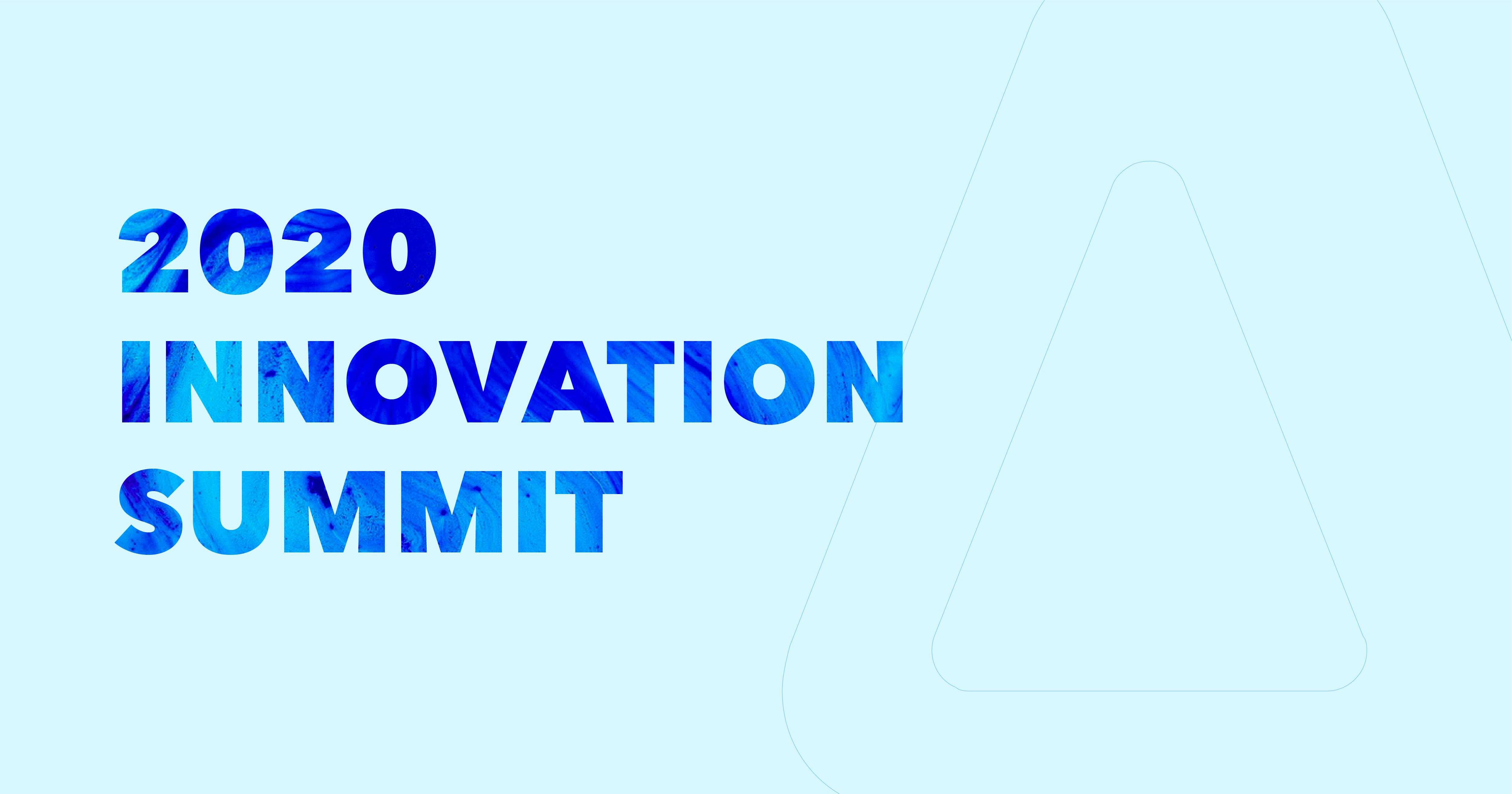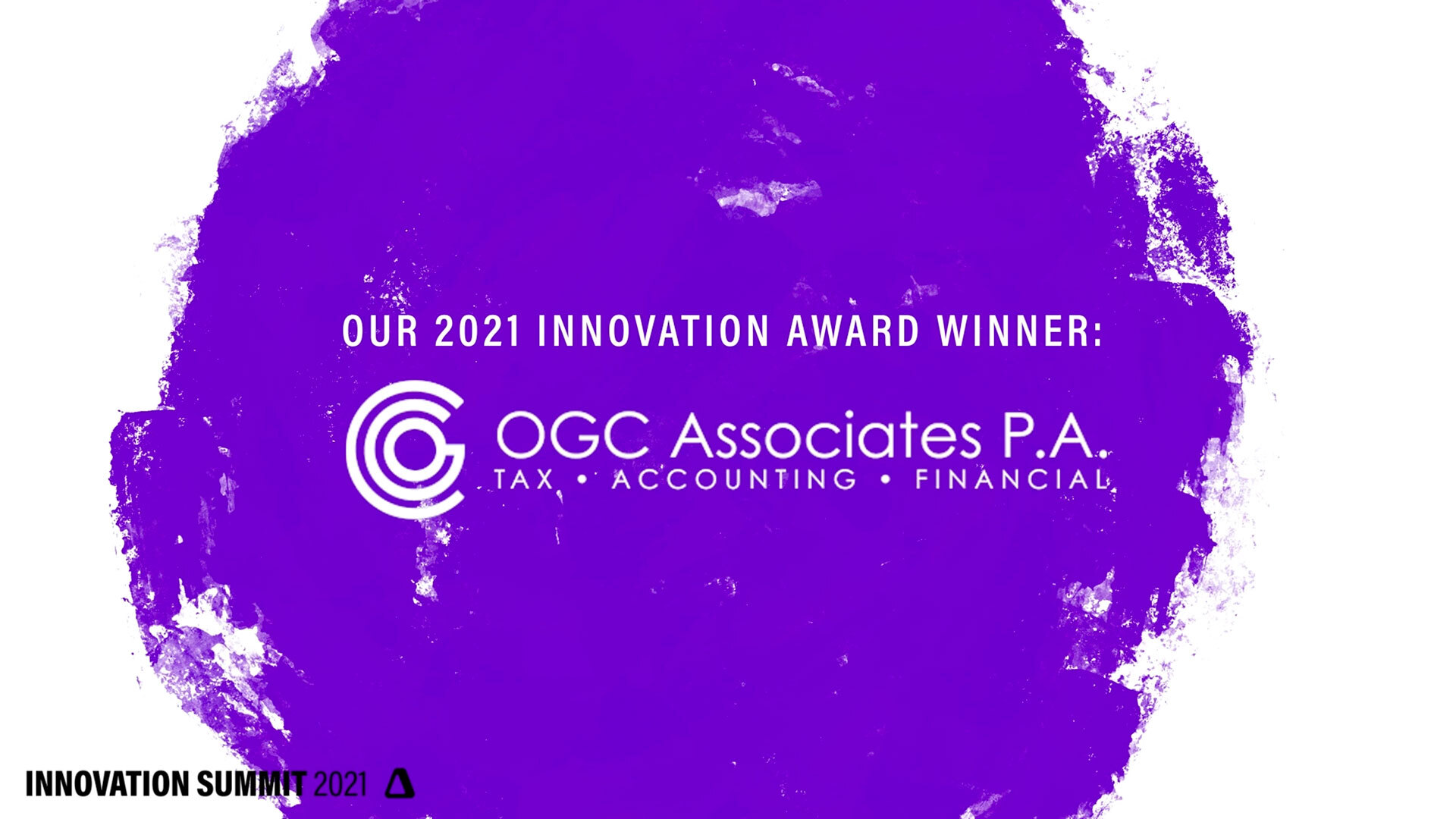On November 10 we kicked off our inaugural Innovation Summit. The agenda included topics such as the importance of adapting to change, how firms can practice everyday innovation, the future of practice management, and how Canopy has helped one firm to thrive in a digital environment. Speakers included:
- Host: Jeff Kinsel, Head of Customer Success, Canopy
- Davis Bell, CEO, Canopy
- Alison Fuller, VP of Finance, Canopy
- James Faugthenberry, Canopy user
- Larry Furr, Chief Product Officer, Canopy
- Jody Padar, The Radical CPA
If you missed the summit, you can watch the full thing here. Or you can keep reading for a recap.
The importance of adapting to change
Davis Bell started off the event by addressing the importance of adapting to change. He used the example of Blockbuster not adapting their business strategy to compete with Netflix, which ultimately led to Blockbuster going out of business and Netflix thriving.
He posed the question: How can we avoid the basic human tendency to pretend change isn’t coming and to fail to prepare for it?
Davis offered these five tips for acknowledging and adapting to change:
Avoid the tyranny of the present
The first tip Davis offered was to recognize that as humans we have a powerfully ingrained bias toward the present. We’re built to believe that things as they currently are will continue to be. This bias is sometimes called “the tyranny of the present.”
We look around at the world as it is and it makes a powerful impression on us because we can see, taste, touch, hear, and smell it. Any reality different from the present is nothing more than an idea in our head, and it pales in comparison to the current reality. Anytime our brains start to consider and envision change, we look around at the present and it tends to convince us that change will never come.
Reminding ourselves constantly that things won’t always be as they are now is critical, and requires persistent effort. When you’re thinking about preparing for the future, ask yourself, “Am I giving in to the tyranny of the present? Am I assuming that things will always continue to be the way they are now?”
Read history
The second tip is a simple one: read history. It can be about anything as long as you’re transporting yourself into the past to inhabit the worlds and minds of people who’ve come before. When you read history, you discover examples of people failing to foresee and adapt to change. You’ll have a front row seat as you watch them assume that things would go on in the same way they had been, and you’ll witness how spectacularly wrong they were.
Watch for signs of change
The next tip is to watch for signs of change. While some changes come out of the blue, most change gives us warning before its arrival.
For example, the 2008 financial crisis was preceded by warnings. There was a mania of buying and flipping land and homes. As early as 2006, home prices were falling while mortgage defaults were rising, but that was ignored by most people. All of the major investment banks continued to place large bets on the housing market and broader economy, and many of them didn’t survive as a result.
The signs of change are often there, but we have to watch for them. There’s not a simple, easy way to do that. It requires engagement with the world—seeking out expert views, talking to customers and colleagues, staying up to date with technology, etc.
Try to overcome motivated reasoning
The fourth tip for preparing for change is to do your best to recognize and overcome motivated reasoning. Motivating reasoning is, as one psychologist defined it, “the tendency to find arguments in favor of conclusions we want to believe to be stronger than arguments for conclusions we do not want to believe.” In other words, we easily believe that which we want to be true and don’t easily believe that which we don’t want to be true.
So how does motivated reasoning impact our ability to acknowledge and prepare for change? Because preparing for change requires effort, and as humans who used to have to carefully preserve our energy, we’re built to avoid effort unless necessary. Preparing for change takes time, energy, and resources that we don’t want to expend, so we have a powerful motive to deny that change is coming.
Allocate resources to preparing for change
The final tip Davis gave for preparing for change is to recognize that preparing for change requires resources and be willing to allocate those resources. Reallocating resources is often hard and painful. Preparing for change also often requires that we learn new skills and abilities, which can be difficult. But what is more painful is missing a critical lifeline for your business because you don’t want to commit the resources required to change.
Davis ended by saying, “I am certain of one thing: people and organizations who acknowledge that change is coming, and who commit to doing what it takes to prepare and adapt, will thrive.”
Embracing technology to become a digital firm
Next, Alison Fuller interviewed Canopy user James Faughtenberry about how he is embracing technology to grow his firm and become completely digital.
James primarily uses Canopy’s Practice Management features to streamline his processes. From taking notes during client meetings to setting up workflows on the fly, Canopy has been a big driver in increasing efficiency for his business.
James works from several different locations, and he meets with all new clients virtually. All of James’ clients use Canopy to upload the files he needs to work on their taxes. Last tax season, he didn’t have a single tax meeting that was in-person, and he plans to do the same for this upcoming tax season.
Outside of tax preparation, James also offers consulting services. Because he has become more efficient with Canopy, he is now able to focus on growing his firm. When James first adopted Canopy (and replaced the OneNote system he was using) he was able to generate about $10,000 of recurring revenue a month. Since then he’s seen about 120% growth.
James said, “I live in Canopy. It is my brain. If I don’t have it, I don’t function.”
Learn more about James’ experience with Canopy.
The future of practice management
Next up in the lineup was Larry Furr who talked about Canopy’s vision for the future of the accounting industry and how Canopy is working to make that vision a reality.
Technology advances every industry. We use technology to increase the rate at which we complete our work and the quality of our output, but some industries embrace technological advancements faster than others. This is especially true of software.
The accounting industry boasts a variety of software tools that aid accountants in performing a myriad of tasks from sending client proposals and tracking time to storing files and collecting payments. While each of these tools is good at performing the tasks for which they were created, they often fall short of doing much beyond that.
There are a few solutions on the market that address two or more of these accounting activities, but they tend to fall into one of two categories:
A) Are no longer evolving and have become antiquated compared to modern software solutions
B) Have not yet mature enough to overtake incumbent solutions
The promise of an end-to-end practice management suite is to do all these things in the most efficient and user-friendly way possible.
But even the practice management product category is in need of a transformation. There are a few trends we’ve noticed when looking at the industry.
First, a lot of practice management tools do little more than facilitate time tracking and billing. Tasks such as e-signature, file management, and workflow are left to be taken care of by other point solution providers—none of which integrate with most practice management software.
Next, most accounting software focuses on features that help accountants to complete a task rather than helping you to provide better service to your clients. Most of these softwares don’t even consider your clients or how you interact with them.
Third, a few more mature accounting softwares have become broader in their approach to practice management and yet have failed to embrace technology advancements such as cloud technology and mobile, effectively keeping accountants chained to their desks.
Lastly, the way we communicate with clients has changed, and none of these technologies have adapted to that change. A new generation of customers expect to communicate with you on their terms and timelines, and that includes things like texting and video conferencing. The COVID-19 pandemic has only accelerated the need for virtual communication with your clients. In-person consultations have become a thing of the past, and communicating via mobile devices is the new normal.
In summary Larry stated that the accounting software industry has lost focus on what makes accounting practices tick: its customers. In the accounting software industry’s rush to provide clients with software tools that tended to make accountants’ jobs easier, the customer was lost in the shuffle, and that needs to change.
To see firsthand what Canopy is doing to keep accountants and their clients at the center of accounting practice management software, sign up for a demo.
Practice everyday innovation
Jody Padar wrapped up the event with a keynote speech about practicing everyday innovation. Jody believes that accountants have always been innovative, they just need to remember where they fall on the innovation spectrum.
With client relationships evolving and accountants moving into a more advisory role, innovation goes beyond the scope of accounting alone. Jody said innovation starts by asking yourself two things:
- How can you be more innovative in your firm?
- How can you help clients embrace innovation?
Here are the main areas Jody recommends thinking about as you begin to innovate:
Think like a startup
In the next 120 days, try thinking like a startup. A startup attitude includes:
1. Pick a problem and focus
Specialize in what you can uniquely provide.
2. Develop your specialization
You must understand every facet of your market value/ service value. This knowledge informs what your firm does and its function.
3. Pick something of value
Pick something of value based on recent history, the present moment, and the foreseeable future. Anticipate your value based on need right now and try to anticipate how that will evolve based on external factors, i.e. know what’s fixed and stable vs. what can change according to market flux and other non-fixed variables. Build something based on what you know and be agile enough to adapt.
4. Have integrity
Know what you set out to protect and provide, and do not waiver due to outside circumstances.
5. Build for the long term
Do not prioritize short-term gains over long-term relationships.
Take an advisory approach
How are you going to speak with clients about uncertainty moving forward? The basis of an advisory approach includes discussing with your client these three things:
- What you know for sure
- What you do not know
- What you would not do
Walk alongside your clients and help them make decisions. It’s not your job to tell clients which moves to make, but you can powerfully advise them and give them the technical and relevant information they need to make decisions.
When the old rules no longer apply (particularly in a post-COVID world), translate applicable information to help clients feel informed, supported, and financially stable.
Additionally, accountants need to move the advisory approach further down the line to younger staff members so they can learn advisory skills sooner. Automation is going to change what tasks are done by accountants, and more accounting professionals will need advisory skills at that point.
The role of technology and process
Jody said that accountants should absolutely be using cloud technology and that technology should be part of innovation but argues that technology isn’t the whole picture.
She says that technology can help you run your firm better, but the innovation comes from your processes and the interactions you have with clients. It doesn’t work to put new technology on an old, broken process. Your process still needs to be relevant.
What technology does do is allow you to standardize. When inputs and processes are standardized you’ll have:
- A happier team
- Faster output
- Opportunity for growth
Consider building a process around how to serve clients, and if clients refuse to adjust to your new process, they may not be the right fit for your firm.
Take advantage of new opportunities
There is currently an opportunity to offer new services in your accounting firm by helping clients define remote processes, redefine their service offerings, and digitize their businesses. As your clients return to the office and the new normal, you should be thinking about risk analysis, unemployment consulting, and the after effects of PPP loans. Despite the bizarre times, now you have the unique opportunity to:
- Gracefully exit C & D clients from your firm
- Work more with the clients you love
- Consider if you have the right team to work in this new environment
Start by identifying what’s most important to work on first. Ask the people who are closest to the problems you’re solving for their perspective. When you choose something to innovate on, make sure it involves time savings, cost savings, and revenue gains.
Among the chaos, accountants have the opportunity to grow and redefine their businesses, but they have to make innovation part of our DNA.
Jody left off with the thought, “You can have fear [around uncertainty] and still lead...you take a breath and you answer the call, and you’re there for your client.”
Practice Management for accountants
If you’re interested in learning more about how Canopy is providing innovation in the accounting practice management space, sign up for a personalized demo. One of our product specialists will walk you through our entire Practice Management suite.








Get Our Latest Updates and News by Subscribing.
Join our email list for offers, and industry leading articles and content.